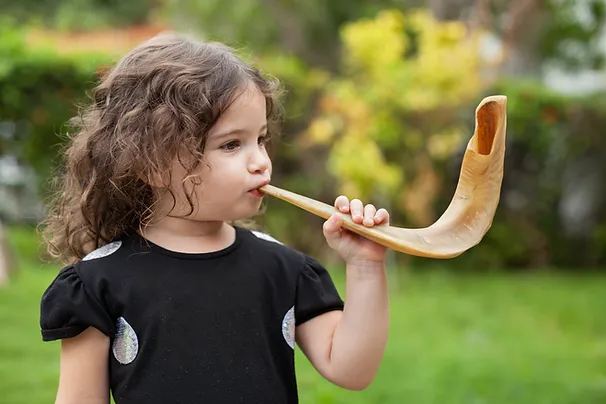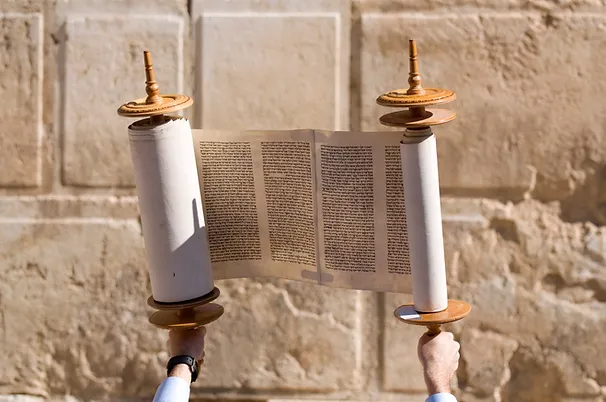
20 Christian Pilgrimage Sites in Israel: The Guidebook
Israel, often called the birthplace of Christianity, is a land steeped in history, holding deep significance for believers. Christian pilgrimage sites abound in this small
When visiting Israel, it is important to note which Jewish holidays might coincide with your trip as many attractions and transportation might close in observance. Knowing the Jewish holiday and Jewish calendar is a great insight into the culture of Jewish people all around the world.
The calendar that is most used around the world, is the Gregorian Calendar, where that includes the 12 months we are most familiar with, and the New Year starting on January 1st. The Jewish calendar is very different to the Gregorian calendar, as it is luni-solar, meaning it is based on the lunar months, of 29 days, alternating with 30 days of 12 months.
To give a better idea of how the Jewish calendar works, the date changes at sunset whereas the Gregorian calendar switches days at 12.00 am. In the winter time, according to the Jewish Calendar, the next day can start as early as 4.00 pm, as it changes according to the moon (sunset), not the time. Because the days start at sunset, all holidays and Shabbat (Saturday) start at sunset, and end at sunset as well.
Additionally, the year is different. For example in the Gregorian calendar the year is 2022, but according to the Jewish year, it is 5783.

One of the most well known Jewish holidays is the Jewish New Year. This usually falls out in September or October time. Rosh Hashanah is a two day holiday where Jewish people blow the Shofar, eat apples and honey, and go to the synagogue to celebrate the upcoming year.
Dates of Rosh Hashanah:
1st of Tishrei
(observed sunset till sunset)
2023: September 15th – September 17th
2024: October 2nd – October 4th

The most observed holiday amongst the Jewish people is Yom Kippur. It is considered the holiest day of the Jewish calendar and it is observed by abstaining from eating and drinking for the entire day, going to the synagogue, and a day of deep inner reflection filled with hopes and prayers for the upcoming year. If you have any Jewish associates, being mindful of Yom Kippur and the dates it will fall out on is highly important because there is a very high chance they will not be available for that day.
Dates of Yom Kippur:
10th of Tishrei
(observed from sunset till sunset)
2023: September 24th – September 25th
2024: October 11th – October 12th

This seven day holiday is considered the most joyous time of the Jewish calendar. It is a celebration of the excitement felt in anticipation for the blessings to come in the year ahead. It is observed by building and moving into a Sukkah which is a temporary hut that is roofed with leaves and branches and decorated beautifully to symbolize the awareness of a dependence on God by leaving behind the illusion of materialistic security.
Dates of Sukkot:
15th Tishrei
(observed from sunset till sunset)
2023: September 29th – October 6th
2024: October 16th – October 23rd

The longest holiday, Hanukkah is an eight day celebration, and this winter time festival is most commonly associated with lighting the candles of the Menorah, fried potato latkes, and doughnuts. Hanukkah is a celebration of the miracles the Jewish nation had during the Maccabean revolt to regain control of the second Jewish Temple in Jerusalem against the Greeks in 2nd century BCE.
Dates of Hanukkah:
25th of Kislev
(observed from sunset till sunset)
2023: December 7th – December 15th
2024: December 25th – January 2nd

This holiday commemorates the saving of the Jewish nation from being annihilated in Persia during the 5th Century BCE. This one day holiday is celebrated by having feasts, getting dressed up in costumes and drinking alcohol as well as distributing gifts of food to each other and giving charity. The book of Esther is also read on this holiday as a way of commemorating what happened, and to understand the Jewish people’s miraculous holiday. This holiday falls out in the Jewish month of Adar. The Jewish Calendar has leap years every three years, and when this happens, there will be two months of Adar.
Dates of Purim:
14th of Adar (during a leap year, it will be in the second month of Adar)
(observed from sunset till sunset)
2023: March 6th – March 7th
2024: March 23rd – March 24th

This seven day holiday, also known as Pesach is a celebration of when the Jewish nation escaped from slavery in Egypt after 200 years. Passover is observed by eating Matzah, and by having a Seder. A Seder is a celebratory feast where the era of Jewish slavery is delved into as a way to heal generational trauma, and to celebrate the miraculous freedom. Jewish people who are observing this holiday will not eat any bread, cakes or cookies, to commemorate when the Jewish nation left Egypt in such a hurry, that their bread did not have time to rise.
Dates of Passover:
15th of Nissan
(observed from sunset till sunset)
2023: April 5th – April 13th
2024: April 22nd – April 30th

This 1 day holiday is celebrated to mark the wheat harvest in Israel during Biblical times as well as the time that the Jewish nation was at Sinai and accepted the Torah. This holiday is celebrated by decorating homes and synagogues with flowers to commemorate Sinai being covered in flowers when they received the Torah. It is also celebrated by eating dairy foods, like cheesecake and learning the Torah.
Dates of Shavuot:
6th of Sivan
(observed from sunset till sunset)
2023: May 25th – May 26th
2024: June 11th – June 12th

This day is one of great sadness and mourning for the Jewish people. It is a day of abstaining from food and drink, and unlike Yom Kippur where fasting is a way to celebrate holiness, the fast of Tish B’av is to enable grief and mourning. It is believed to be a day destined for hardships for Jewish people. Throughout the years, on the Jewish date of Tisha B’av both of the Jewish Temples were destroyed, Jewish people were expelled from England, France and Spain, and the day ‘The Final Solution’, the beginning of the holocaust, was put into motion, to name a few. Many Jewish people use this day to commemorate the Holocaust.
Dates of Tisha B’av:
9th of Av
(observed from sunset till sunset)
2023: July 26th – July 27th
2024: August 12th – August 13th
These are the main dates of the Jewish calendar that Jewish holidays occur and are observed. In Israel, the Gregorian calendar is used, but in conjunction with the Jewish calendar. Many Israelis celebrate their birthdays according to the Jewish calendar and Jewish people across the globe will celebrate both birthdates. Many people are friends, work with, know and love a Jewish person, and it’s important to understand the Jewish holiday and calendar to be respectful and aware of Jewish holidays and important dates. Read more on the weekly celebration of Shabbat and how it is observed in Israel here.
Contact our representative for more details about our unique holiday tour by clicking here.


Israel, often called the birthplace of Christianity, is a land steeped in history, holding deep significance for believers. Christian pilgrimage sites abound in this small

In the heart of the Middle East lies Jerusalem, a city steeped in history, culture, and religious significance. Positioned at the crossroads of civilizations, Jerusalem

Jerusalem, a city that never sleeps, transforms into a captivating wonderland after dark. From exploring the enchanting Old City streets to indulging in local ice

Welcome to a week-long adventure in Israel! Discover what to do in Israel for a week and immerse yourself in its rich history and diverse
